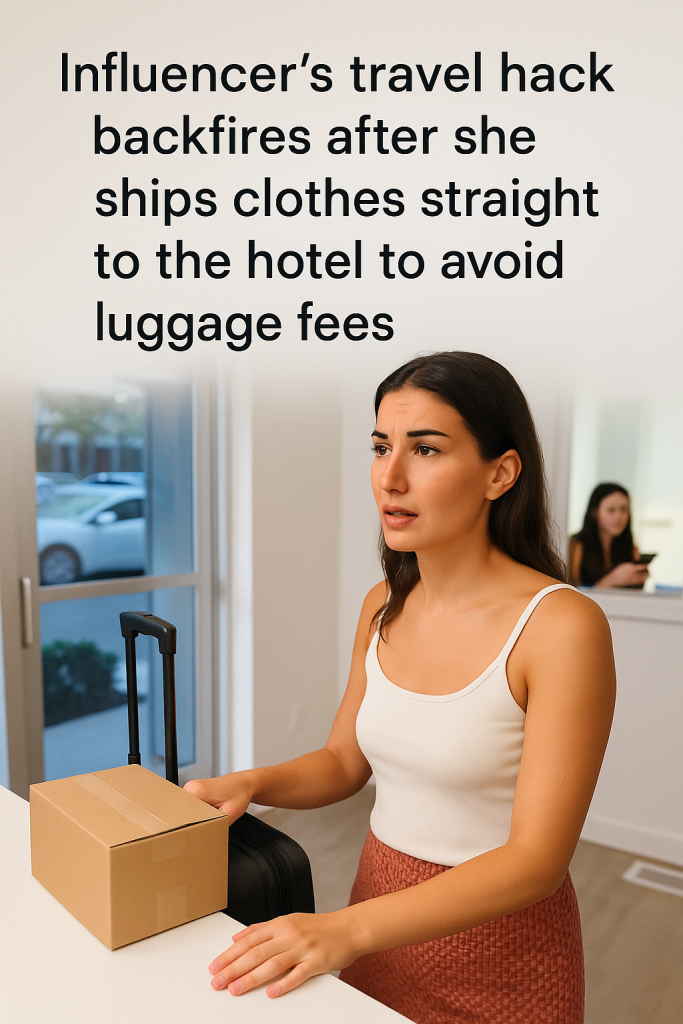A popular travel influencer’s attempt to dodge airline baggage fees by shipping clothes directly to her hotel room has stirred controversy online, igniting debate about travel etiquette and hotel policies.
The influencer, known for sharing budget-friendly travel tips, recently posted a video demonstrating how she avoided paying high luggage fees by sending a package of clothes to her hotel prior to arrival. In her video, she explained that instead of hauling extra bags through airports — often charged upwards of $50 per checked bag — she would ship a suitcase or box to the hotel using courier services.
While the hack initially appeared ingenious, the strategy quickly backfired. Numerous hotels responded publicly, highlighting that receiving guest packages ahead of check-in — especially large parcels resembling luggage — is not standard practice and can create logistical challenges for their staff. Some hotels emphasized that they do not typically accept parcels on behalf of guests without prior arrangement.
One hotel employee, speaking on condition of anonymity, noted, “Hotels have limited storage space, and unexpected shipments can disrupt normal operations and inconvenience other guests.” Several hoteliers also reminded travelers that shipping items to a hotel without advance coordination can lead to lost or delayed packages, mention additional handling fees, or put undue pressure on the front desk.
The influencer later shared follow-up posts expressing surprise at the hotel policies and clarifying that she planned to get permission in the future before sending packages. Despite this, many social media users criticized the approach, arguing that hotels are not delivery hubs and that this shortcut might burden staff and impact service quality.
On the other hand, some viewers sympathized with the influencer’s effort to cut travel costs, especially as baggage fees continue to climb and impact frequent flyers. They suggested that travelers should simply communicate with hotels beforehand or use shipping options that allow direct delivery to nearby pickup points.
Travel experts weigh in on the situation, noting that while the idea can sometimes save money, it’s crucial to check with accommodation providers regarding their mail and package policies. Many hotels have strict guidelines about accepting guest shipments and may charge fees or refuse oversized parcels. Additionally, the timing of package arrival must be coordinated with check-in dates to prevent complications.
This incident underscores the growing tension between innovative travel hacks shared online and the practical realities of hospitality operations. As influencers continue to push creative ways to travel cheaper and smarter, consumers are reminded to balance convenience with respect for service providers’ rules and capabilities.
Ultimately, this story serves as an important lesson: while creative, not all hacks translate well into real-world situations—especially when they affect others’ work. Travelers interested in similar cost-saving methods are encouraged to plan carefully, communicate openly with hotels, and consider alternative solutions like shipping to self-service lockers or using lightweight packing strategies.
The viral nature of this controversy has sparked widespread discussion about how hotels and travelers can better collaborate in the future to accommodate evolving travel behaviors without compromising professionalism and guest experience.



